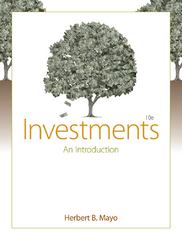Question
PLEASE MATCH THE FOLLOWING TERMS WITH THEIR DEFINITIONS: _____ A. Quasi-contract _____ B. Implied contract _____ C. Express contract _____ D. Promissory estoppel _____ E.
PLEASE MATCH THE FOLLOWING TERMS WITH THEIR DEFINITIONS:
_____ A. Quasi-contract
_____ B. Implied contract
_____ C. Express contract
_____ D. Promissory estoppel
_____ E. Bilateral contract
_____ F. Mirror image rule
_____ G. Letter of intent
_____ H. Gap-filler
_____ I. Counteroffer
_____ J. Clickwrap
_____ K. Liquidated debt
_____ L. Consideration
_____ M. Accord and satisfaction
_____ N. Illusory promise
_____ O. Preexisting duty
_____ P. Usury
_____ Q. Unconscionable
_____ R. Exculpatory
1. An agreement with all terms stated explicitly.
2. A judicial remedy based on a defendants promise on which the plaintiff reasonably relied.
3. An agreement based on one promise in exchange for another.
4. A judicial remedy based on a benefit given by the plaintiff to the defendant.
5. An agreement based on the words and actions of the parties.
6. A communication between negotiating parties that summarizes their progress and may imply a binding agreement.
7. An agreement made online by a consumer who may not understand its terms.
8. One method of rejecting an offer.
9. A common law principle requiring the acceptance to be on exactly the terms of the offer.
10. Terms supplied by the UCC for use in saleofgoods contracts.
11. A promise made by one party which in reality obligates him to do nothing.
12. Something the promisor is already obligated to do.
13. A debt in which the amount is undisputed.
_____ S. Licensing statute
_____ T. Noncompete
_____ U. Undue influence
_____ V. Disaffirm
_____ W. Restitution
_____ X. Fraud
_____ Y. Misrepresentation
14. Payment of an agreed upon sum that is less than what the creditor originally claimed.
15. Bargaining that leads to an exchange between the parties.
16. A contract clause intended to relieve one party from potential tort liability.
17. A contract clause designed to prevent, among other things, an employee from working for a competitor.
18. A contract provision that no one who understood it would sign.
19. Illegally high interest rates.
20. A law designed to protect the public from incompetent professionals and trades people.
21. Misstatement of fact.
22. The intention to deceive the other party.
23. One party to a contract notifies the other that he refuses to go through with the agreement.
24. Restoring the other party to its original position.
25. A dominant relationship together with improper persuasion.
Step by Step Solution
There are 3 Steps involved in it
Step: 1

Get Instant Access to Expert-Tailored Solutions
See step-by-step solutions with expert insights and AI powered tools for academic success
Step: 2

Step: 3

Ace Your Homework with AI
Get the answers you need in no time with our AI-driven, step-by-step assistance
Get Started


